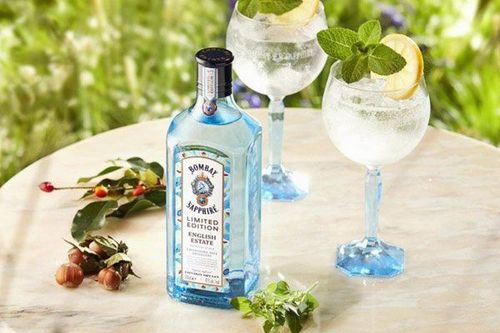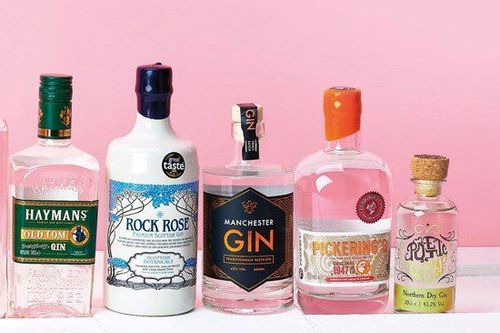Gin, made from juniper berries, is low in calories and retains botanical properties after distillation that may offer certain health benefits. So, is gin good for you? And what are the advantages and disadvantages of gin and tonic? Let’s explore the details below.
1. What are Gin and Gin tonic?
Gin originated from the Dutch spirit Jenever. After distillation and the addition of various herbs, it evolved into a new beverage called gin. However, despite its Dutch origins, gin was not as popular or well-known as whisky or rum. It wasn’t until the 17th century that the English refined the production process, making gin more affordable and palatable, leading to its growth in popularity.
When English kings permitted unlicensed gin production while heavily taxing imported spirits, gin became a cheap substitute widely embraced by the lower classes. Today, Gin is experiencing a resurgence due to its affordability and popularity among craft distillers. In recent years, it has become a favorite in Western countries, particularly as a base for classic cocktails. Gin typically contains 34%-47% alcohol by volume.
To produce gin, essential ingredients include barley, wheat, and rye. However, the distinctive flavor of gin lies in the botanicals distilled along with it. In addition to the primary flavor of juniper berries, gin requires other botanicals that contribute to its unique taste, making it different from other spirits such as cinnamon, angelica root, star anise, lemon peel, orange peel, coriander, nutmeg, and more. Like other liquor, gin is produced through fermentation and distilled in upright stills, which resemble tall columns. This distillation process helps gin achieve a high alcohol content while retaining its light and pure flavor. Botanicals are added in two ways. The first method involves infusing the herbs into the base alcohol before distillation. The second method involves placing the herbs in specially designed baskets within the still, allowing alcohol vapor to pass through and absorb their flavors. This method results in a richer and longer-lasting flavor, compared to the first.

In approximately 30ml of Gin, the nutritional content includes:
• Calories: 64 calories
• Protein: 0 grams
• Fat: 0 grams
• Carbohydrates: 0 grams
Gin contains little sugar, so its calorie count is lower compared to some other liquor. If anyone has ever drunk Gin, they might notice that it is considered a slightly healthier option compared to other spirits such as whiskey, rum, or vodka.
Currently, gin is popular worldwide, with several well-known brands such as Bombay Sapphire, London Dry Gin, Plymouth Gin, Old Tom Gin, and Genever Gin. Additionally, there are several gin-based cocktails such as Sloe Gin Fizz, Gimlet cocktail, and of course, Gin and Tonic—a must-have for cocktail lovers due to its distinctive taste, which can be addictive after the first sip. Originally, Dr. George Cleghorn discovered quinine, a compound that could help prevent and treat malaria, a disease that greatly affected the health and lives of soldiers and civilians in India. At the time, India was one of Britain's colonies. Fortunately, quinine could be absorbed through tonic water, but its bitter taste was quite unpleasant. Later, with the idea of creating a more palatable drink, an officer attempted to mix water, sugar, lemon, and gin with tonic water. Ultimately, they succeeded, and the drink known as Gin Tonic was born.
The soldiers enjoyed this drink, making it more popular. Over time, this drink has evolved into a version that is more suited to modern tastes, and of course, more enjoyable for the general public. Today, tonic water usually contains less quinine, tends to be sweeter, and is less bitter. When combined with gin, it results in a refreshing, sophisticated cocktail that is perfect for cooling off on hot summer days.

2. Is Gin good for you?
Gin is considered a popular liquor today, crafted in various forms to bring out distinctive flavors in each type. Gin is most commonly used in cocktails, helping drinkers feel relaxed after a day of work, and it can be consumed in larger quantities without the risk of intoxication. Additionally, some articles highlight the potential benefits of drinking gin, attributed to the properties of juniper berries used in its production. However, there is no evidence to suggest that the antioxidants from juniper berries survive the fermentation process. In a study comparing gin with red wine, gin did not demonstrate any notable antioxidant properties. Still, from certain perspectives, gin may provide health benefits associated with moderate alcohol consumption. This means that drinking about one glass per day for women and one to two glasses for men may help reduce the risk of heart disease and other conditions. While moderate alcohol consumption can have positive effects, drinking excessively can negatively affect health, increasing the risk of diseases like high blood pressure, coronary artery disease, heart failure, ischemic stroke, metabolic heart disease, and type 2 diabetes. However, to confirm the relationship between moderate drinking and these effects, researchers need to control for other factors.
Thus, gin is a long-established liquor that has developed into various forms over time, offering different flavors to its consumers. Occasionally, gin is mixed into delicious cocktails that can even become addictive to users. Gin can help users feel refreshed, relaxed, and relieve stress after a hectic day. However, we should not consume too much gin, and drinking one to two glasses is usually sufficient.
To arrange an appointment, please call HOTLINE or make your reservation directly HERE. You may also download the MyVinmec app to schedule appointments faster and manage your reservations more conveniently.
Reference sources: webmd.com, wideopeneats.com
To arrange an appointment, please call HOTLINE or make your reservation directly HERE. You may also download the MyVinmec app to schedule appointments faster and manage your reservations more conveniently.








